President Trump’s much-protested executive order restricting immigration from seven majority-Muslim countries, suspending all refugee admissions for 120 days, and barring Syrian refugees from entering the United States indefinitely, has unleashed chaos.
Issued without clear implementation guidance, immigration officials and legal advocates have been struggling to keep pace with developments. Last night, the acting attorney general—an Obama administration appointee—declared that the Justice Department would not defend the order against legal challenges. She was swiftly fired.
With much in flux, here are five things to know:
Who is affected by the measure?
All refugees are barred from admission for 120 days; those fleeing the violence in Syria are barred indefinitely. Travelers from seven Muslim-majority countries—Iran, Iraq, Libya, Somalia, Sudan, Syria, and Yemen—are barred for 90 days.
The Department of Homeland Security initially said that green card holders (i.e. legal permanent residents) from those seven countries would be prevented from returning to the United States. Over the weekend, the administration appeared to reverse that decision.
For those who are dual nationals of one of the seven affected countries, circumstances are just as murky. Early State Department guidance suggested that dual citizens would be barred from entry. Later, the International Air Transport Association told airlines that dual nationals would in fact be allowed in.
What do the courts say?
On Saturday night, a federal judge in Brooklyn issued an emergency stay to prevent the deportation of travelers who had already entered the country. Judges in at least four other states—California, Massachusetts, Virginia, and Washington—quickly issued similar rulings.
But it isn’t clear that border officials are fully complying with those rulings. The ACLU is investigating reports that, among other things, affected travelers were denied access to attorneys. Democrats in Congress have called for a probe.
Is this a Muslim ban?
Strictly speaking, no. The seven targeted countries are not the most populous Muslim-majority countries. Muslims residing elsewhere will still be able to enter the United States. However, those affected by the measure are overwhelmingly Muslim. President Trump indicated in an interview that his administration would give priority to refugees who are Christian.
There is also ample evidence of discriminatory intent. While running for the office, President Trump called for a “total and complete shutdown of Muslims entering the United States.” Former New York Mayor Rudy Giuliani, now an adviser to the president, said that Mr. Trump wanted a “Muslim ban” and asked that he assemble a commission to show him “the right way to do it legally.”
How are world leaders responding?
European leaders, including German Chancellor Angela Merkel and French President François Hollande, were quick to criticize Trump’s immigration policies. So too were European mayors, who have been largely responsible for receiving and integrating large numbers of new arrivals.
Meanwhile, right wing leaders rejoiced. Geert Wilders, founder of the far right Party for Freedom in the Netherlands, who has been put on trial on more than one occasion for hate speech against Muslims and immigrants, celebrated the measure. So did the far-right National Democratic Party in Germany.
For their part, Iran and Iraq have threatened reciprocal bans. Influential Iraqi cleric Moqtada al-Sadr said Americans should leave Iraq, and Islamic State sympathizers have called the measure a “blessed ban” because of its potential to drive recruitment.
What will the impact be?
The order caps the total number of refugees admitted to the United States this year at 50,000. That’s less than half the target set by the Obama administration for fiscal year 2017. It would be the smallest number of intakes since 2007, when the United States accepted roughly 48,000 refugees. That was before the Syrian civil war, a great engine of displacement.
The direct effect of this policy will be to deny those fleeing violence in Syria the opportunity to find refuge in the United States, long a global leader in resettlement. That alone is worth pause.
But so too are the indirect consequences, which are equally detrimental. The measure will weaken the international refugee system as a whole at a time when it is most needed. As my colleague Beth Ferris has argued, that system was put in place to protect the rights of the most vulnerable while preventing refugees from threatening international peace and security. Undermining it is not in our interests.
Nor is undermining our alliance with Europe, which has long been our most reliable security partner for dealing with challenges ranging from terrorism to a revanchist Russia.
Also important is what the measure portends. It’s hard to imagine that the Trump administration intends to increase humanitarian assistance to Syria’s neighbors, which are struggling to cope with the spillover effects of the violence there. Without the necessary resources, states on the front lines of the crisis could become more fragile than they already are.
Finally, to the extent that such a policy—and the vitriol that surrounds it—makes it easier for organizations like the Islamic State to recruit, it is likely to lead to an increase in terrorist attacks against Americans, as Brookings’s Daniel Byman noted. That is in large part because it suggests that the United States does not in fact support rights and refuge for all.
In short, regardless of whether or not its lawful—and substantial evidence suggests that it is not—the order is harmful to America’s national security interests. It weakens a critical alliance, drives instability in the Middle East, and is likely to fuel anti-Americanism and perhaps even terrorism at home and abroad.
The Brookings Institution is committed to quality, independence, and impact.
We are supported by a diverse array of funders. In line with our values and policies, each Brookings publication represents the sole views of its author(s).


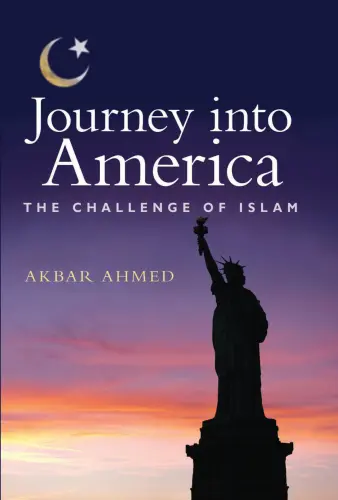
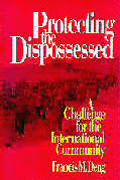
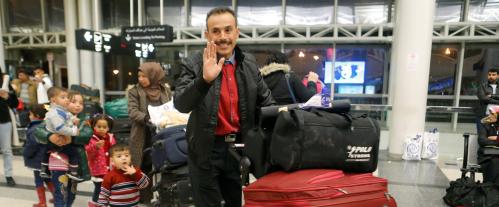
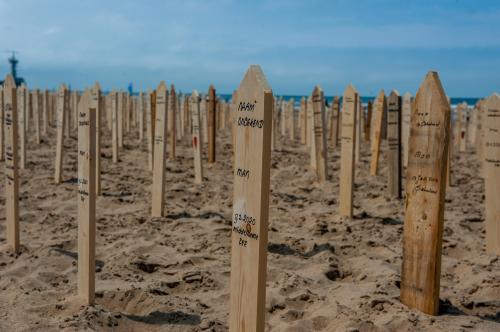
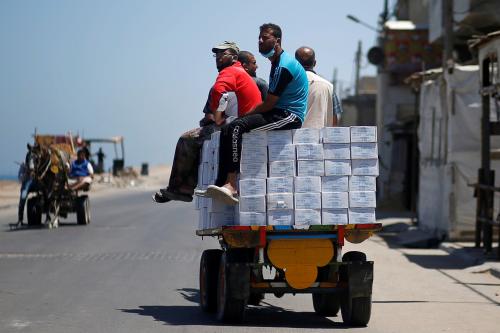


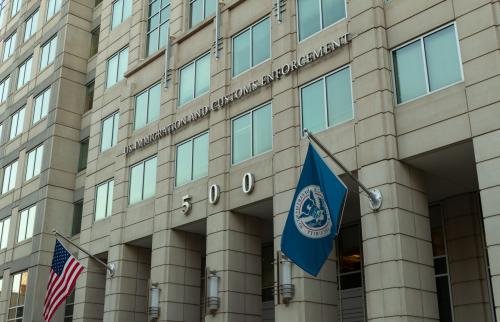

Commentary
The refugee ban and what comes after
February 1, 2017